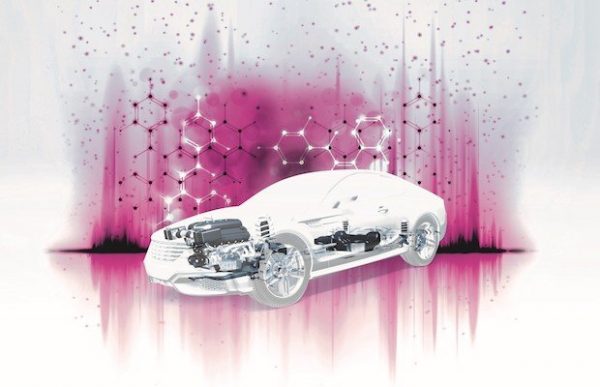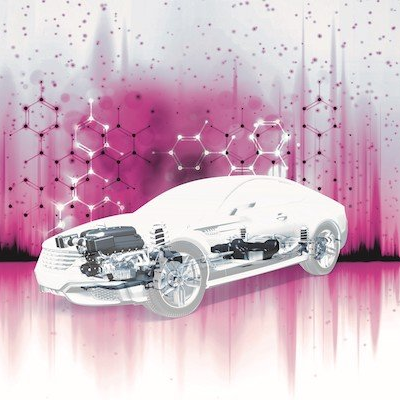DSM ‘claims back’ Metal Replacement with ForTii Ace
Thirty years ago, DSM made the automotive world sit up and listen when it launched its Stanyl PA46 product into a marketplace where – at the time – metal was all that mattered.

Now, the materials science innovator is doing it all again with the ‘game changer’ ForTii Ace, which it launched at K 2016.
A PA-based on 4T chemistry, ForTii Ace offers metal replacement technology with the same high performance as PEEK, with thermal, chemical and mechanical properties allying it perfectly with the needs of automotive.
After a period of testing and tweaking among select OEMs and Tier 1s, DSM brought the constant-use temperature of ForTii Ace up to 150 degrees Celsius and increased resistance to automotive oils and chemicals to a standard comparable or even superior to PEEK, making it a real option for die-cast metal replacement in powertrain, transmission, thermal management and chassis applications.
“At DSM we claim to be the inventors of the high temperature polyamides with Stanyl,” said Commercial Director DSM Engineering Plastics Joost d’Hooghe when he sat down with EPPM at K 2016. “With ForTii Ace, I think we’re claiming back our space for high temperature. We’ve taken this material and set the standard and increased the envelope.”
Hesitation
The automotive industry has come a long way since the launch of Stanyl in 1986 and metal replacement is one of a myriad ways OEMs are meeting efficiency targets, but there is still some reluctance to take the plunge into plastics where structural parts are concerned.
“Some are somewhat hesitant,” d’Hooghe said. “The automotive industry is fearful – they want higher reliability and safety. Fortii Ace is gives them all of this because we push the transition temperature way above 150 degrees where we’re actually measuring 160 degrees to be on the safe side.”
The strategy for ForTii Ace is to offer a high-spec engineering plastic that can dominate automotive across the spectrum of what normal polyamides can do up to PEEK level. PEEK, d’Hooghe explained, is really the only alternative to die-cast metal, but the advantage of ForTii Ace is once the associated costs of milling, drilling, and die casting metal are taken into account, ForTii Ace is very competitive and this could be the nudge hesitant OEMs need to move out of metal and into plastic. Moreover, the material offers acoustic advantages, which is a particular draw for the luxury car market.
Trend-watching
Three-years in the making, ForTii Ace is causing ears to prick up across a wider range of applications than just automotive.
“We’re starting to get questions even though we didn’t introduce it to other industries. It’s a unique experience to get so much pull from the market,” d’Hooghe stated.
But ForTii Ace has been optimised for structural parts and DSM is aligning itself to this section of automotive first and foremost, even though there is a wide horizon of opportunities in electronics applications.
“We are looking at the larger trends and convergence of automotive and electronics, which is quite good because those are our number one and two markets,” d’Hooghe said. “We’re seeing connected cars or connected appliances on wheels – whatever way you approach it, for us all these trends are very positive.”
Pushing the envelope
Research and development is important to DSM and d’Hooghe pointed out that DSM outspends the competition in R&D – both in application development and in developing new polymers.
“This is important, especially with the ForTii Ace which really is a new polymer, not just an additive added to a compound,” he said. “We start from new chemistry to make sure we achieve these high performances because there was a plateauing of the polyamide family and by using our own in-house chemistry we could take innovation to a higher level.
Source : eppm













